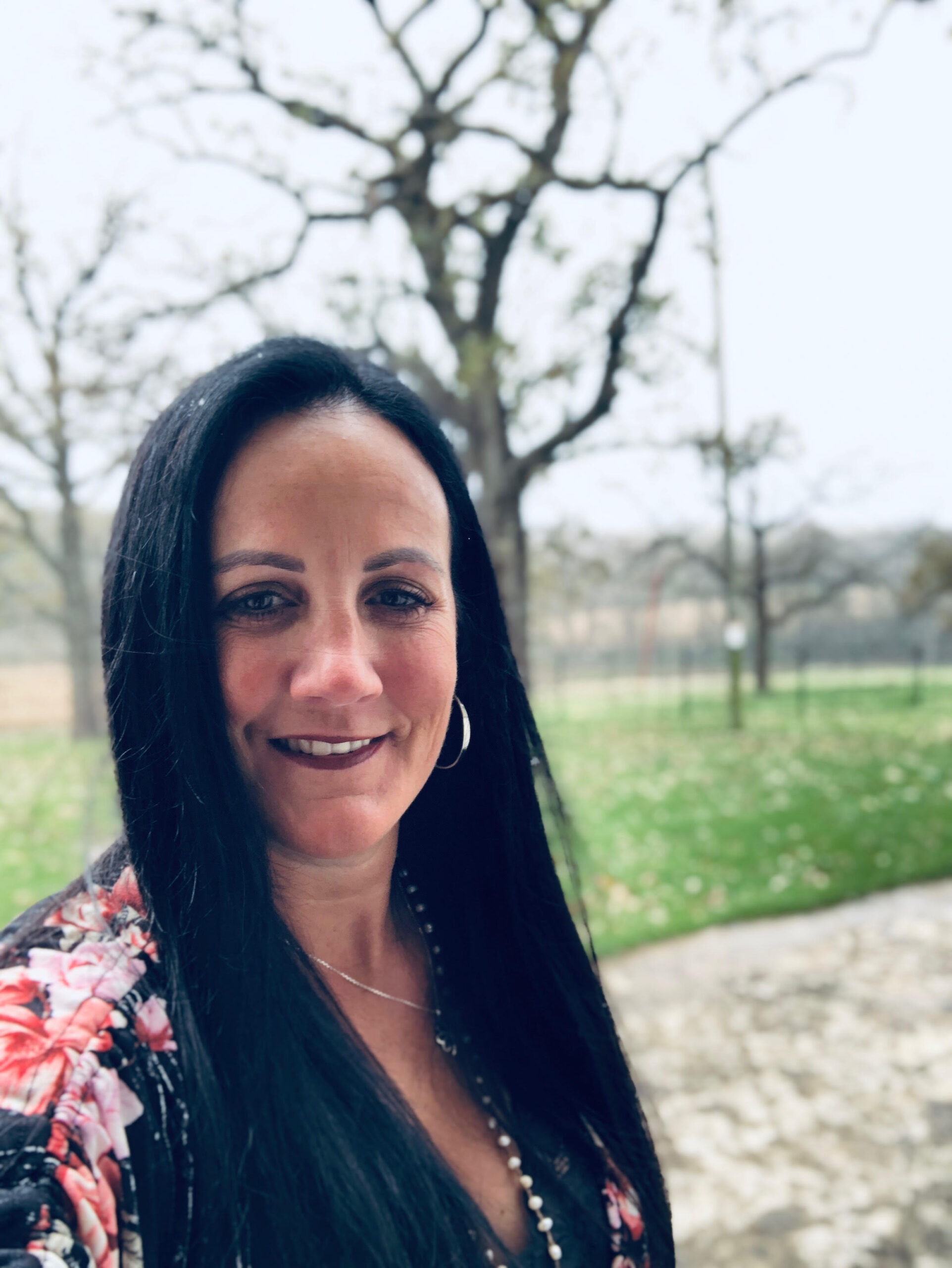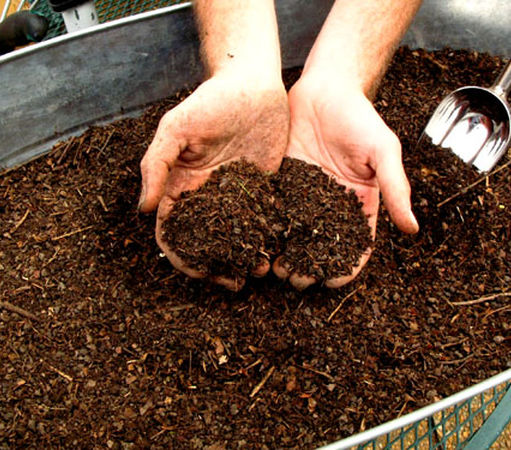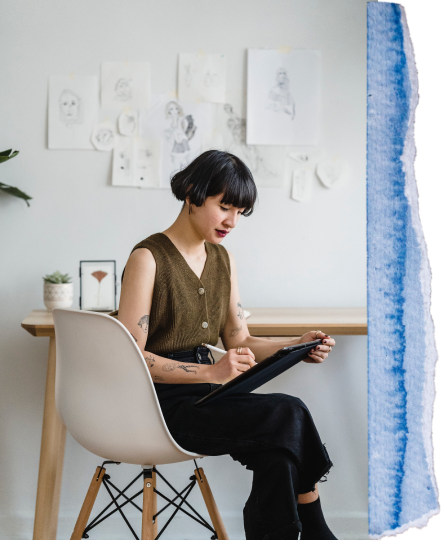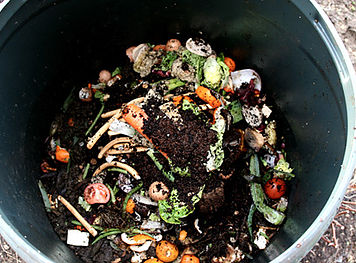I spoke with Dee Hunter, owner of Rooted Curbside Compost, to ask all my burning questions about running a composting business. Dee offers services to residential and commercial clients in the Madison area who are looking to reduce the organic waste that they send to the landfill. She then turns this waste into nutrient-rich compost on her farm in Barneveld, Wisconsin.

Dee: I am an entrepreneur. I’m always looking for things to make money and this presented itself. I actually just bought the business back in August.
With it being green and sustainable and having so many avenues and options to grow the business is what attracted me to this particular area.
Also, Madison had just quit Dane County’s composting program that they were piloting. That went by the wayside, so that left more avenues for our business to pick up more clients and to help keep [food waste] out of the landfill.
How and when did you first learn about composting?
Dee: Oh boy, years ago… I couldn’t even tell you an exact date to be honest. We have a farm. We raise beef cattle. We have pigs and whatnot, so composting has obviously been something we’ve been doing for years.
Some people are turned off by the idea of composting because they think it will be gross and smelly. What do you have to say to those people?
Dee: Well, they’re actually right. There are some disadvantages. It is rotting food that you are keeping for weeks, sometimes bi-weekly, before pickup. It isn’t the most pleasant smelling thing, but you have to look at it long-term and what it’s doing to our environment and focus on keeping it out of the landfill. It’s turning into compost. It’s going to be beneficial to our gardeners, our landscapers, and anyone who is planting and growing their own food.
“It isn’t the most pleasant smelling thing, but you have to look at it long-term and what it’s doing to our environment and focus on keeping it out of the landfill.”
Dee: Absolutely! We have both commercial and residential clients. They typically contact us via our website. They can choose either weekly or bi-weekly pickup.
They get a bucket with a compostable liner and a lid. They will receive an email the day before pickup which is on Thursday, the same day that Madison does their trash pickup, so it’s easy. You just take your trash out and your compost bucket goes out to the curb as well.
They pay their fee and it’s pretty simple. Cut and dry.
The commercial accounts use the 96-gallon toters which is similar to what the City of Madison gives out with the rollers and hard plastic. We pick those up, empty them out weekly, and we’re good to go!
“We have a lot of apartment dwellers that use our service, especially in downtown Madison.”
What would you do for someone who lives in an apartment building?
Dee: Currently it operates in the exact same way. Some people will keep [the bucket] in their apartment. Most keep them in a garage area or underground parking.
When it comes time for pickup they will put their bucket out on the curb. We have a lot of apartment dwellers that use our service, especially in downtown Madison.

What do you do with the food scraps after you collect them?
Dee: Our compost is picked up twice a week. For businesses, it’s Monday and Thursday. For residential, it’s strictly Thursdays.
It goes out to our farm in Barneveld, Wisconsin and next year, we hope to have compost. Or maybe in two years. We’re not sure with it being new what it’s going to take to have the compost ready.
Are there any other sustainable practices you implement in your business?
Dee: Our compostable liners are something we’ve added new to the business earlier this year. We’re trying help with the cleaning of buckets… the water waste that goes into what it takes to get all the buckets and lids clean each week. The compostable liners have certainly cut down on that water waste because the buckets aren’t as dirty as when they were just being filled with compost and then having to scrub to get the residue off.
Now I have a few questions about composting from people on Instagram… what do we do about tea bags?
Dee: Tea bags are a tough one. We aren’t taking those at this time because they aren’t as quick of a break down as coffee grounds and coffee filters. Unfortunately, some of our customers aren’t getting that memo and are still putting them in their bins. But at this time, we’re asking not to put those in your compost buckets.
What is one thing most people don’t realize they can put in their compost bin?
Dee: The inside of your toilet paper roll. That cardboard roll is good. Paper towel and shredded newspaper are a couple things people aren’t aware of that certainly can be added to their bucket. It just can’t be waxed or shiny. Or the stickers on your fruit… those have to be peeled off because they don’t break down.
This is a kind of a creepy question, but how about human tissue such as hair, nails, etc.?
Dee: Yep, absolutely! Those are great. They add nitrogen to the compost pile. So, yes! We’re going to start hitting more of a commercial market. So groomers and salons are great for the compost pile.
[The hair] has to be clean, so typically dogs. Groomers are going to be better for not having chemically treated hair. Salons where people are dying their hair is not going to be a good mix.
Same with fingernails. They’re good as long as there is no fingernail polish on them.
If people want to find any more information about Rooted Curbside Compost, where can they connect with you?
Dee: The website is our best place for information.
Otherwise, we also have a Facebook page and soon to have an Instagram page.
[All photos courtesy of Dee Hunter & rootedcurbsidecompost.com]
Get Started
on your own with OUR
ROAD to zero waste course
ROAD to zero waste course
Are you struggling to imagine how to build a world without waste? This course will help you harness hope, overcome hurdles, and chart a path to sustainability.




